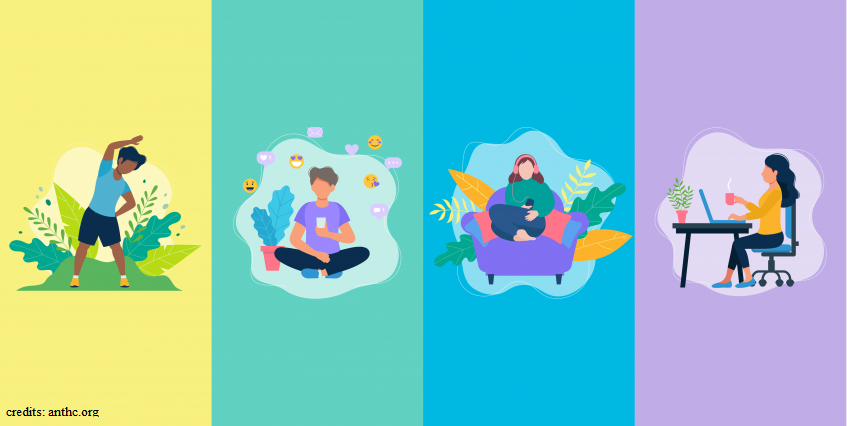Wellbeing of Filipinos in South Korea: A Needs Analysis
The coronavirus pandemic is an unfolding crisis whose extent of damage could be measured only when it finally ends. Suffice it to say that its economic ramifications are devastating. The global economy shrunk. More and more people are unemployed, hungry, and homeless.
But on top of the economic impact of the COVID-19 crisis, its socio-psychological implications should not be taken for granted. Remember that human beings have needs beyond foods, clothes, and shelter. These are only what Maslow classified as basic in the hierarchy of needs. People have higher needs – psychological and self-fulfillment needs – that must be satisfied.
The inevitable changes that took place because of the spread of this coronavirus have created different kinds of challenges and difficulties that left people with no choice but to contend with. They were confronted by circumstances different from what they were accustomed to.
The ongoing health crisis is testing how much a person could endure… how resilient are they. The current reality forged by the deadly pathogen has created different kinds of problems that may lead to uncertainties, grief, anxiety, fear, and loneliness. It would require resilience to overcome these negative emotions.
Resilience as defined by Luthar (2006), is “positive adaptation despite adversity.” It refers to the person’s ability to adjust to change and/or the capacity to recover from unfortunate events or misfortune. It is the capability to tolerate (and effectively cope with) experiences of change and adversity.
How resilient a person is depends on their level of wellbeing. In any study featuring these two constructs, a hypothesis of a direct positive correlation existing between them is very likely to be accepted. It means that the higher the level of a persons’ wellbeing the more resilient they are.
The Oxford dictionary defines wellbeing as the “state of being comfortable, healthy, or happy (Oxford, n.d.). This concept, as Purcell (2018) explained, embraces more than just physical health. It takes into account the entire person, both body and mind. It indicates not just the absence of illness but also the presence of positive mental states, emotions, and moods.”
“Species with useful adaptations to the environment are more likely to survive.” This is what Charles Darwin famously said. Given the current situation, to adapt is the only option people have. And the ability of a person to adapt to the kind of environment the ongoing pandemic created hinges on the level of their wellbeing.
Surviving the pandemic is the goal of adaptation. It is a personal responsibility. It’s not just a matter of steering away from the deadly path of the infectious disease but also coping with the situation that emerged from its trail of destruction and maintaining a strong resolve not to succumb to the challenges and difficulties that come along.
Overcoming the challenges and difficulties the deadly virus spawned requires all forms of toughness – physical, emotional, mental and spiritual. It demands a body and mind in tip-top shape, a holistic wellbeing.
The fear of possibly getting infected by the virus and losing job or working fewer hours (which means lesser pay too) are causing fear and uncertainty among many people. Losing loved ones to the deadly pathogen has left a lot of people grieving too. Coping to changes in lifestyle has caused so much stress as well. All these and other problems would really require toughness to overcome. And if a person is non-resilient, their inability to adapt or recover might lead to some other and worse problems.
Take into consideration also the directives to stay at home and strictly observe social distancing. Such orders from the authorities may seem inconsequential, but they are not. They do have debilitating effects. While social isolation may have saved a lot of people from getting infected by the virus, it exposed them to another kind of malady – loneliness.
Loneliness is a psychological condition that should not be taken for granted. Wilson et al. (2007) stated that “loneliness is often described as the state of being without any company or in isolation from the community or society. It is considered to be a dark and miserable feeling, a risk factor for many mental disorders like depression, anxiety, adjustment disorder, chronic stress, insomnia or even late-life dementia.”
“Prolonged isolation,” as Cacioppo and Hawkley (2003) argued, “can adversely affect physical and emotional health, altering sleep and nutritional rhythms, as well as reducing opportunities for movement.” Nardone & Speciani (2015) added that “isolation causes the natural channels of human expression and pleasure to become depressed negatively impacting mood and subjective well-being.”
So, social isolation, if not properly handled, may cause both physical and emotional problems. However, it is necessary. Most people would probably choose to bear the problems resulting from social isolation than the one caused by the deadly virus.
Staying at home and socially distancing may not be much of a problem, or not a problem at all, for those who are living with their families. But for people living alone, either by choice or circumstances, it could be. These people are the ones most vulnerable to problems that social isolation brings about.
One particular group that belongs to the category aforementioned expats or people living in foreign countries, mostly as workers or students.
Foreigners in a particular country, just like the citizens of that country, are caught in the same web of problems created by the coronavirus pandemic. They feel or face the same uncertainties, grief, anxiety, fear, and loneliness. But it’s very likely, that the foreigners, being away from their families, are more prone to the dangers of social isolation and other kinds of problems emanating from the ongoing health crisis. Thus, they need all kinds of assistance they could get from whatever support groups their own governments or from private organizations or individuals who are willing to help them.
Click on the link below to continue reading…
Posted on February 6, 2021, in Filipinos in South Korea, Wellbeing and tagged Resilience, Wellbeing. Bookmark the permalink. 2 Comments.


Interesting post kabayan
LikeLike
I reported in this article the results of the wellness needs analysis survey conducted by an organization of Filipinos based here in South Korea of which I am a member.
LikeLiked by 1 person